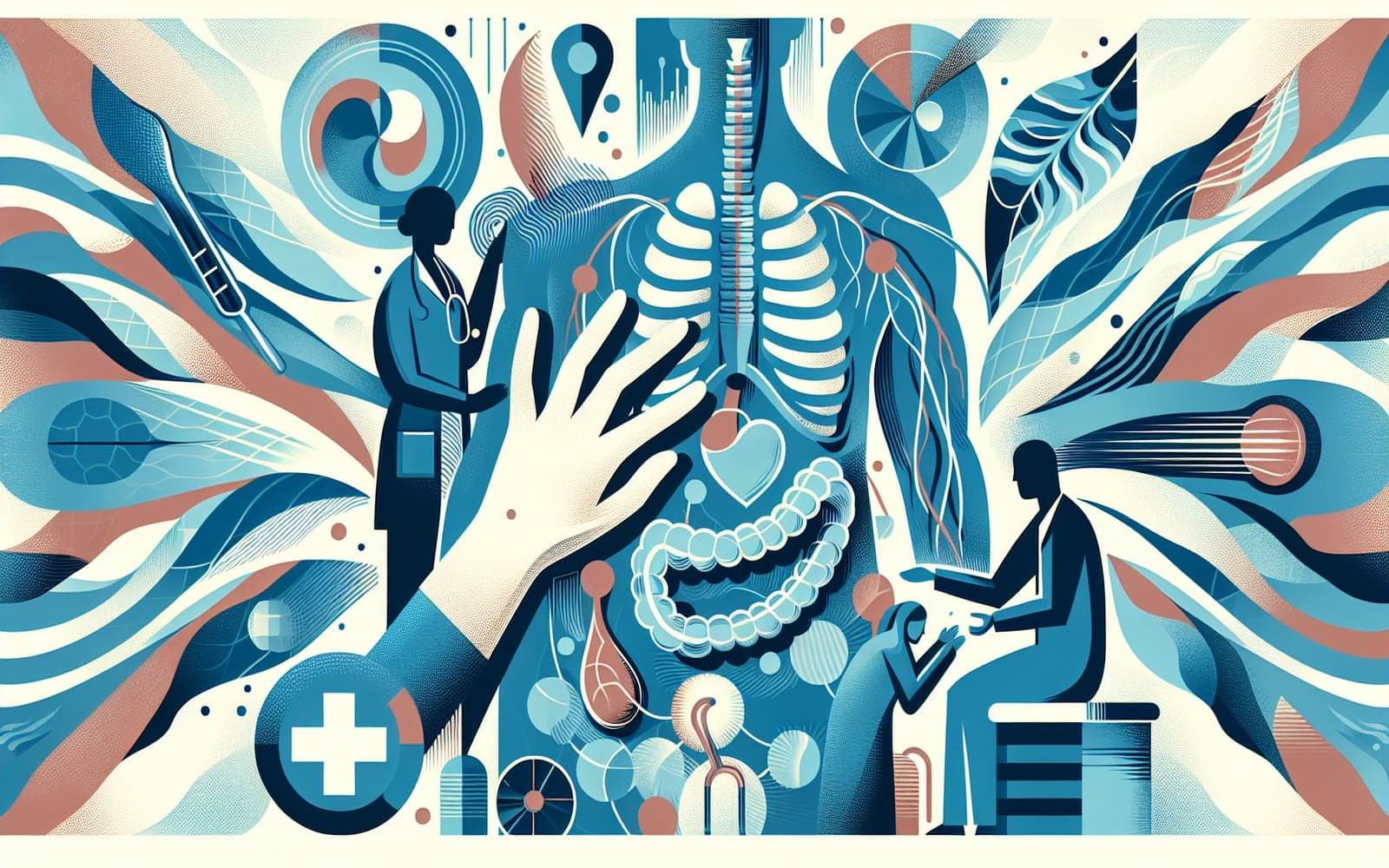Contents
-
Common Symptoms Explained
-
Why Symptoms Occur
-
Potential Complications
The Signs of Zenker's Diverticulum: What to Watch Out For
The Signs of Zenker's Diverticulum: What to Watch Out For
What's This About?
Recognizing the symptoms of Zenker's Diverticulum early can make a big difference in managing the condition effectively.
Contents
-
Common Symptoms Explained
-
Why Symptoms Occur
-
Potential Complications
Common Symptoms Explained
People with Zenker's Diverticulum often experience difficulty swallowing, particularly with solid foods. Other symptoms may include bad breath due to trapped food particles and gurgling sounds in the throat. In some cases, individuals may notice a lump in their neck or experience regurgitation of undigested food.
Why Symptoms Occur
The symptoms occur because the diverticulum traps food and other materials, which can lead to irritation and infection. As the pouch grows larger, it can block the passage of food, causing further swallowing difficulties. These issues can worsen over time if left untreated.
Potential Complications
If Zenker's Diverticulum is not addressed, complications like aspiration pneumonia or even esophageal cancer can develop. In severe cases, the diverticulum can become so large that it obstructs the esophagus completely. Early detection and treatment are key to preventing these serious outcomes.
FAQs
What are the first signs of Zenker's Diverticulum?
Difficulty swallowing and bad breath are common early signs.
Why does food get trapped?
The diverticulum acts like a pouch, trapping food particles.
Can Zenker's Diverticulum cause serious issues?
Yes, complications can include pneumonia and even cancer.
Is regurgitation a common symptom?
Yes, regurgitating undigested food is a typical symptom.
How can symptoms be managed?
Early diagnosis and treatment can help manage symptoms.
The Bottom Line
Recognizing the symptoms of Zenker's Diverticulum early is crucial for effective management.
Additional References
-
Siddiq MA, Sood S, Strachan D. Pharyngeal pouch (Zenker's diverticulum). Postgrad Med J 2001; 77:506.
This article has been reviewed for accuracy by one of the licensed medical doctors working for Doctronic.












